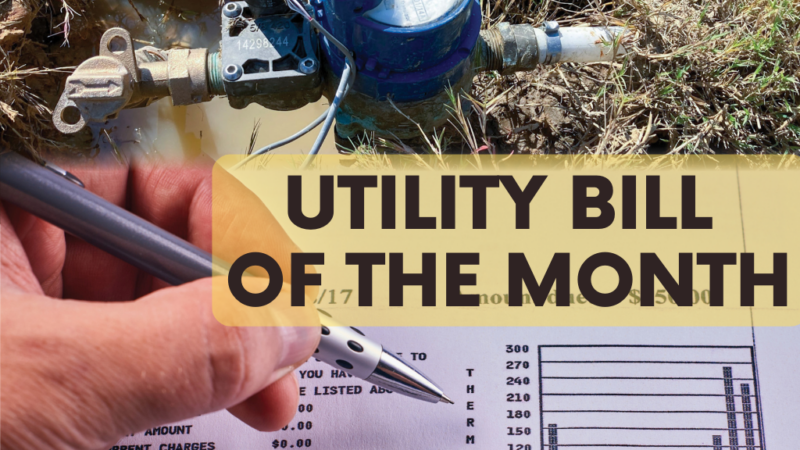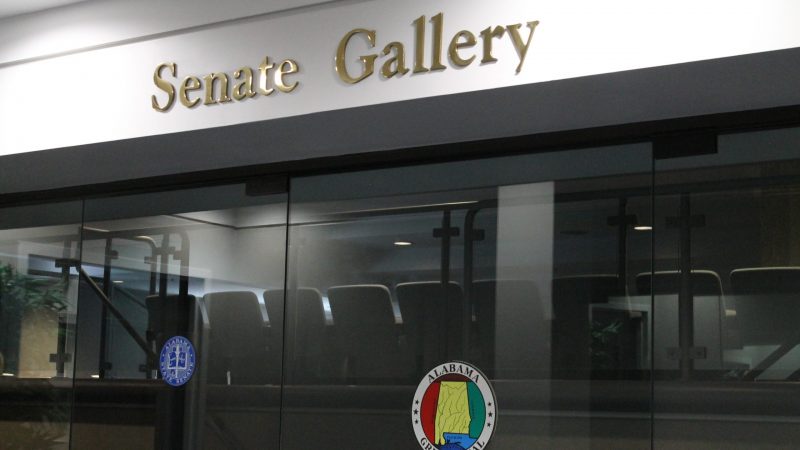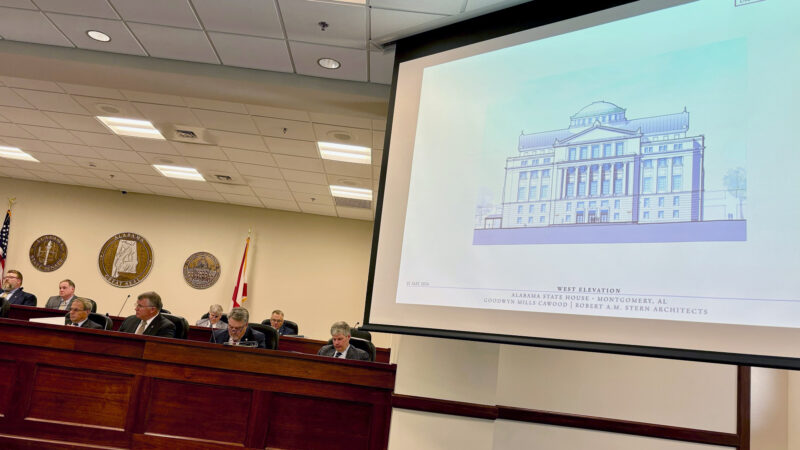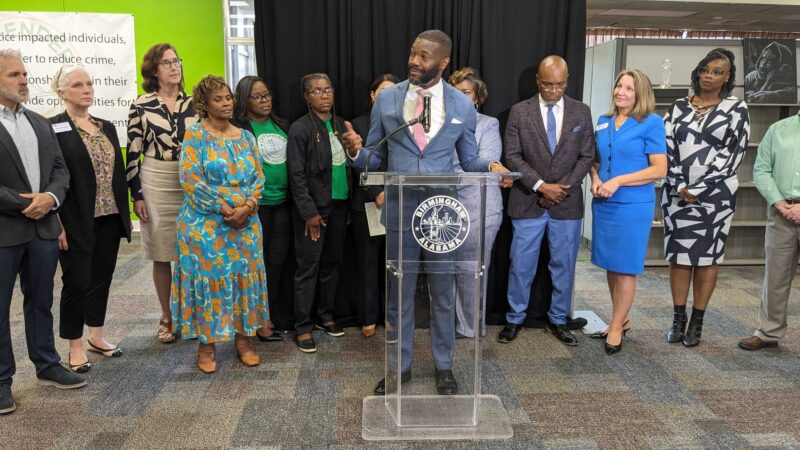4 factors besides cold weather that explain expensive winter power bills
This story is part of a crowdsourced project investigating utility billing issues in Alabama, Louisiana and Mississippi. Do you have a utility bill you’d like us to look into? Submit it here, and with your permission, we may use it in one of our monthly features.
The apartment Will Burt moved into in January had everything he wanted, and then some. It’s on the top floor of his building, is a corner unit and has a killer view of downtown Birmingham.
It even provided him with the perfect view of rare snow falling on Birmingham’s skyscrapers shortly after he moved in.
Still, the place is tiny — only about 400 square feet. So when it was time to pay the power bill for that month — his first since moving in — he expected it to be around $40. Instead, he got sticker shock in the form of a $150 balance.
To find out how this was possible, he did what any millennial would do: he went to Birmingham’s Reddit page.
“My first thought was just ask the community,” Burt said. “‘Hey, what’s going on? Why is my power bill 150 bucks and I live alone and I’m not here half the time and when I am here I don’t do anything?’”

The post quickly went past 100 comments and he learned of cases much worse than his own. Commenters reported bills that have doubled, even tripled compared to previous months — compared to December in some cases, for others, January 2023. One said their previous January bills were around $250. This year it was $600.
Power bills spiked across the Gulf South after a cold January sent temperatures below freezing. Now, some Alabama customers believe those expensive bills can’t be blamed on the weather alone.
And they’re right. Global fuel costs, state regulators and utilities all bear some responsibility for the frigid zap to customer’s budgets.
Here are four factors to blame for Burt’s — and possibly your — expensive winter bill.
The regulators
Throughout Burt’s thread, commenters named two consistent villains: Alabama Power, the state’s largest electricity provider, and the Alabama Public Service Commission, which regulates the former.
An investigation by NPR and Floodlight found that a consulting firm hired by Alabama Power paid conservative news sites in 2013, to carry out a smear campaign against Terry Dunn, a Republican and former member of the commission. Dunn had been calling for a formal rate hearing of the utility shortly after being elected to his seat in 2010. He lost his reelection in 2014 because of the attacks.
Commenters also accused the state regulators and the utility of caring for the utility’s interests over their own. An analysis from the Energy and Policy Institute, a renewable energy advocacy group, accused the regulators of misleading a state legislative review committee by suggesting that Alabama Power’s profit margins have halved over the last decade.
The advocacy group says Alabama Power’s profits have remained steady and its return on investment has been significantly higher than industry average rates.
Now, the commission says its mission is to keep rates affordable. Alabama’s electricity rates are close to the national average — just as they are in Mississippi and Louisiana. That average price, however, is still expensive in states with otherwise low costs of living and some of the lowest median incomes.
The commission recently ordered Alabama Power to return about $15 million to customers because the utility went over its 6.15% profit cap. Ultimately, that will amount to about $5 back for the average household.
Fuel costs
Both Alabama Power and the APSC blame rising costs partly on inflation. But if you really want someone to blame for high energy bills, the commission points the finger at the Biden Administration’s “punitive and radical energy policies.”
“Customers are facing unprecedented fuel costs, which are passed through to them, due to President Joe Biden’s war on fossil fuels,” a spokesperson said in an emailed comment.
And yes, fuel costs are set globally and are formed, in part, by policies from the Biden Administration. But they’re also shaped by other global factors, like the war in Ukraine, and shaped over a longer stretch than one presidency, according to the Southeast Energy Efficiency Alliance (SEEA).
“It’s a much longer arc than a single administration,” William Bryan, director of research at SEEA, said.
Furthermore, the commission bears some responsibility for how those fuel costs affect bills. The state regulators allow Alabama Power to pass all of its fuel expenses on to customers.
Some, however, believe that utilities should take on at least some of that cost, even as little as 2% or 3%. This would create an incentive to find ways to save on fuel, according to The Rocky Mountain Institute.
“Most of the country, including in Alabama, don’t have accountability for fuel costs,” said Rachel Gold, a principal with the clean energy advocacy group. “Utilities should have some skin in the game.”
Energy inefficient homes
While our region may have roughly average energy prices, it actually has some of the most expensive power bills in the country. In fact, Alabama has the highest power bills, according to an analysis from WalletHub.
Louisiana, Mississippi and Alabama rank first, second and third for electricity consumed per customer, according to that same research. That’s because homes here are so energy inefficient, the region uses more energy per person than anywhere else in the country.
The region’s building codes and energy efficiency regulations trail other states, meaning that the air customers spend so much money heating or cooling leaks out at a much faster rate. Home buyers or renters, like Burt, also have little way of knowing before they rent just how energy inefficient their new place will be.
“There’s no real way to know going into that transaction how expensive it’s going to be from an energy standpoint,” Bryan said.
Customer responsibility
Some of the responsibility for keeping homes energy efficient and using less power still comes down to the customer.
Adding weather stripping can help with those leaky homes, and keeping the thermostat steady at a lower temperature works better than manually switching off for long periods.
For his part, Burt is now running an experiment. Now that he knows what the high end of his power bill looks like — at least he hopes it doesn’t go past $150 in the future — he’s trying to see how low he can get February’s bill. He’s following the thermostat advice and wearing fuzzy socks and a jacket to keep warm.
“Luckily it hasn’t gotten to the point of shivering,” Burt said. “The only thing that really gets cold, like a lot of people, are extremities. So if your feet get cold, just throw on some socks.”
Bundling up and tightening a leaky home can make a serious difference on a power bill, but customers bear just a fraction of that responsibility. Utilities and their state regulators could do more on their end to keep bills down.
“There’s really only so much you can do,” Bryan said. “The big deciders are not necessarily behavioral. They are structural.”
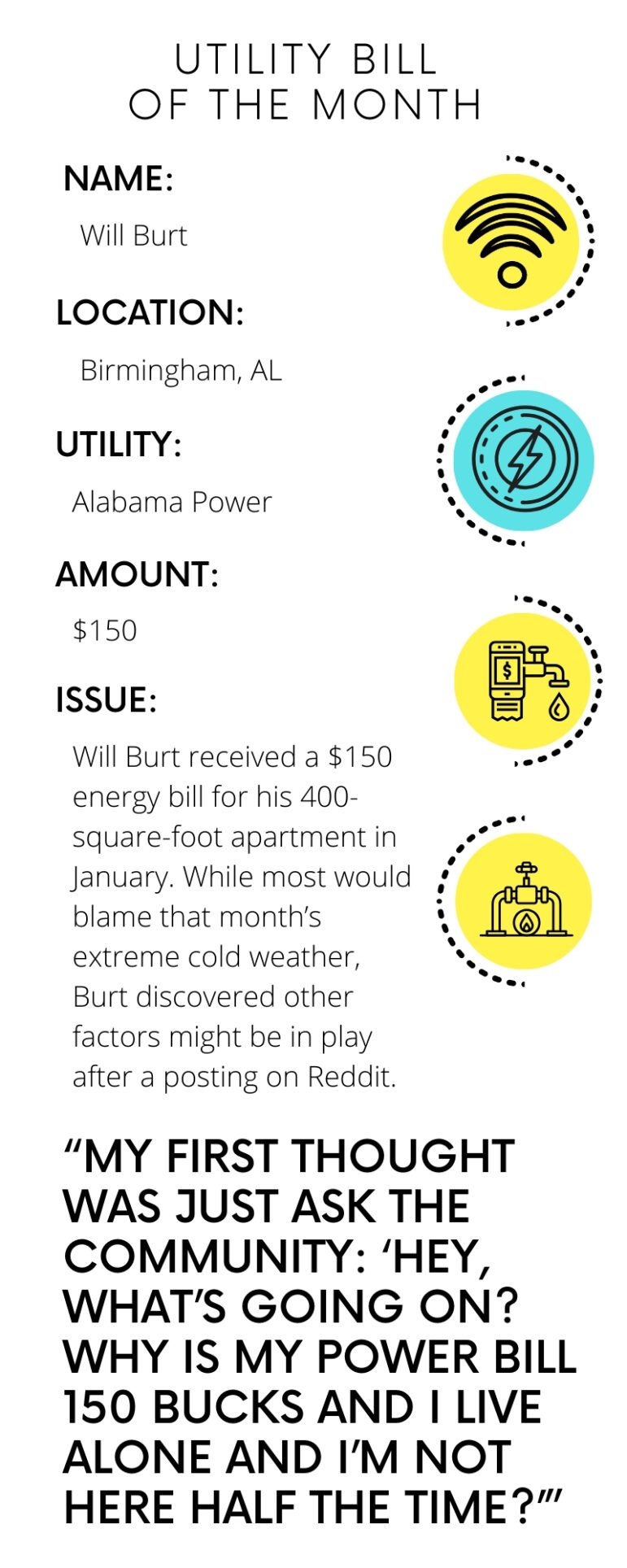
This story was produced by the Gulf States Newsroom, a collaboration between Mississippi Public Broadcasting, WBHM in Alabama, WWNO and WRKF in Louisiana and NPR.
Gambling bill in doubt with three days left in the legislative session
Alabama lawmakers are coming down to the finish line for this year’s legislative session. Many bills await passage, but perhaps the biggest one up in the air is a lottery and gambling bill.
Pro-Palestinian demonstration draws counter-protest at University of Alabama
Students gathered demanding the school call for a permanent and immediate ceasefire and to push the school to sever ties with defense contractor Lockheed Martin.
A new Statehouse and related projects will cost about $400 million
The Alabama Legislative Council, a 20-member panel comprised of legislative leaders and their appointees, approved the construction of the new Statehouse last year. The panel was given an update on the project on Wednesday.
New pilot program will offer housing, resources to people leaving prison
The Birmingham Reentry Alliance will provide wrap around services to dozens of men and women adjusting to life after prison.
Alabama committee advances ban on LGBTQ+ pride flags in classrooms
The Senate Education Policy Committee voted 5-2 for the House-passed bill, putting the proposal in line for a possible final passage in the last four days of the legislative session.
A New Orleans garden paid hundreds of dollars in fees for a sewer that doesn’t exist
Galvez Garden owner Lissie Stewart has been fighting the New Orleans Sewerage and Water Board over inaccurate billing for years.
